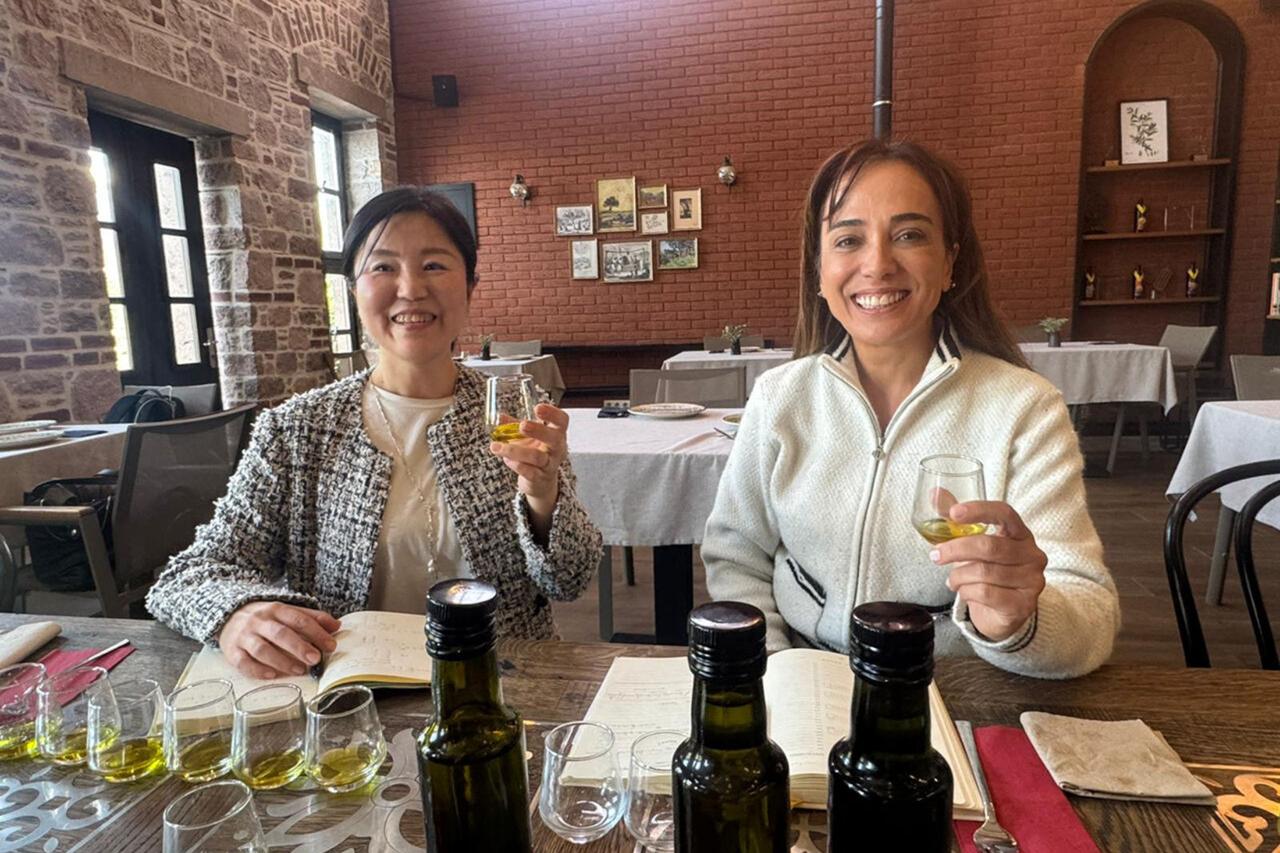
Two women entrepreneurs from Türkiye and Japan have launched a cross cultural project that promotes Turkish olive oils in East Asian kitchens.
Award winning Turkish producer Bahar Alan and Japanese chef and olive oil taster Hiromi Nakamura created a blend called ChefBlend using local varieties from Türkiye. The project aims to widen the presence of high quality Turkish olive oils in global gastronomy.
Nakamura visited Ayvalik in Balikesir at Alan’s invitation and worked with varieties such as Memecik, Ayvalik and Trilye.
She said interest in olive oil has increased in Japan as more consumers turn to healthy eating trends and the Mediterranean diet.
She described ChefBlend as a product that brings balance, versatility and familiar notes for Japanese cooks.
Nakamura explained that she began focusing on olive oil after serving as a judge in international tasting competitions.
She said NovaVera’s oils drew her attention because of their quality and the awards the brand earned in global contests. After contacting the company, she visited Ayvalik to start work on a blend suited to both Japanese cuisine and wider Asian markets.
She said ChefBlend combines Trilye’s strong fruitiness, Ayvalik’s balanced structure and Memecik’s spicy character.
According to Nakamura, this mix creates a layered flavor profile that fits dishes from both culinary traditions. She added that Japanese consumers often prefer oils with high polyphenol values because they associate them with quality and health benefits.
Nakamura noted that olive oil is now used in a wider range of Japanese recipes as chefs experiment with lighter and healthier preparations.
She said cooks sometimes replace soy sauce with a light drizzle of olive oil on sashimi and seafood to create a more refined taste. Some kitchens also add a small amount of extra virgin olive oil to ramen and soups for aroma depth.
She added that tempura dishes have also changed as more chefs use olive oil to achieve a cleaner and lighter texture.
Nakamura said these shifts show how Japanese consumers now accept olive oil as a natural part of their cooking practices. She believes this trend will support greater interest in premium products from Türkiye.
Nakamura said olive oil acts as a practical and cultural link between the two cuisines.
She explained that Japanese food values purity and clarity of flavor, while Turkish dishes offer depth and richness. She said these two approaches meet naturally when olive oil is used as the base of new recipes.
She added that this collaboration can open more opportunities for chefs in both countries. According to Nakamura, Turkish varieties such as Trilye, Memecik and Ayvalik already offer flavor profiles that appeal to Japanese cooks.
She expects stronger cooperation in the coming years as interest in Mediterranean ingredients continues to grow.
Alan said she founded her brand in 2017 and expanded her work from olive groves to international competitions.
She explained that she met Nakamura through global tasting events and continued the relationship as the chef used NovaVera oils in her cooking school. Alan said they launched ChefBlend last year to introduce Turkish varieties to new audiences.
She said Türkiye has around 100 olive varieties and many remain outside commercial production. Her company places each variety’s name on the bottle to improve consumer awareness.
Alan added that olive trees form their own ecosystem with birds, worms and wild plants, and warned that harmful chemicals affect this entire system.
She said clean agriculture is necessary to protect both the trees and biodiversity.